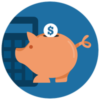Understanding Homebuying Costs
Introduction
Buying a home is a significant financial commitment, and understanding all associated costs is essential for a smooth homebuying journey. While the down payment is often the most talked-about expense, there are several other costs, including closing fees and escrow payments, that buyers should be prepared for.
By planning ahead and knowing what to expect, you can confidently navigate the financial aspects of purchasing your home.
Key Concepts
1. The Cost of Buying a Home
- Down Payment: Typically ranges from 3% to 20% of the home’s purchase price.
- Closing Costs: Additional fees paid at settlement, usually between 2% to 5% of the home price.
- Escrow Payments: Funds set aside for property taxes and homeowners insurance.
2. Why Understanding Costs Matters
📌 Being financially prepared helps you avoid surprises and ensures a smoother homebuying experience.
📌 Planning ahead allows you to explore assistance programs and financing options to reduce upfront costs.
Data Insights: Down Payment and Closing Costs
Down Payment
Your down payment is the portion of the home price you pay upfront. The percentage required depends on factors like loan type, credit score, and lender requirements.
| Loan Type | Minimum Down Payment |
|---|---|
| Conventional Loan | 3% – 20% |
| FHA Loan | 3.5% |
| VA Loan | 0% (for eligible buyers) |
| USDA Loan | 0% (for eligible buyers) |
💡 Tip: If your down payment is less than 20%, you may need to pay for private mortgage insurance (PMI) until you reach 20% equity in your home.
📖 Learn More: Down Payment Assistance Programs
Closing Costs
Closing costs are fees paid at the final stage of buying a home. These expenses typically range from 2% to 5% of the home’s price.
Common Closing Costs
- Government recording fees
- Appraisal and credit report fees
- Lender origination and underwriting fees
- Title services and attorney fees
- Survey and tax service fees
📊 Example: On a $200,000 home purchase, you can expect closing costs between $4,000 and $10,000.
📖 Learn More: Estimate Your Closing Costs
Common Misconceptions About Homebuying Costs
❌ “I only need to save for a down payment.”
✅ Closing costs, escrow payments, and potential home repairs should also be included in your budget.
❌ “A 20% down payment is required to buy a home.”
✅ While 20% eliminates PMI, many loan programs allow for lower down payments.
❌ “I can’t negotiate closing costs.”
✅ Some closing costs, such as lender fees, can be negotiated or even covered by the seller in some cases.
Practical Applications: Understanding Escrow
Escrow plays a vital role in the homebuying process. It involves a neutral third party holding funds to ensure fair and secure transactions.
Types of Escrow Accounts
| Type | Purpose | Typical Amount |
|---|---|---|
| Earnest Money Escrow | Shows the seller you’re a serious buyer | 1% – 2% of the purchase price |
| Reserve Account Escrow | Covers future property taxes & insurance | 2 months’ worth of reserves at closing |
How Escrow Works During Homebuying
1️⃣ Earnest Money Deposit: When making an offer, buyers deposit money into escrow as a sign of commitment.
2️⃣ Closing Process: Funds in escrow are applied to down payment or closing costs.
3️⃣ Mortgage Payments & Reserves: After closing, a portion of your mortgage payment is deposited into an escrow account to cover property taxes and insurance.
💡 Tip: Escrow accounts help homeowners budget by preventing large, unexpected tax or insurance bills.
📖 Learn More: How Escrow Works
Next Steps
✅ Calculate your estimated down payment and closing costs based on your budget.
✅ Explore down payment assistance programs that can help reduce upfront expenses.
✅ Discuss closing costs and escrow options with your lender to avoid surprises.
✅ Review all fees carefully before closing to ensure you understand your financial commitments.
By fully understanding homebuying costs and planning ahead, you can make informed financial decisions and enjoy a stress-free path to homeownership! 🏡💰

